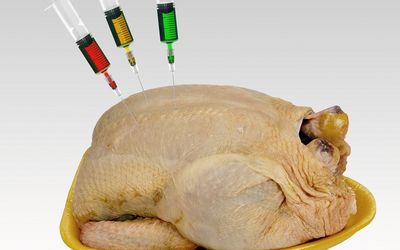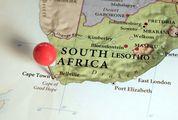South African consumers looking for ‘more cluck for their buck’
by David Wolpert
2016-06-30 05:53:13.0
THE South African Poultry Association’s (Sapa’s) continued attack on imported chicken is a bit like the brined chicken it seeks to protect: seemingly robust yet, on closer examination, full of water.
South Africans are under immense financial strain, and frankly they are less concerned with poultry excuses than about getting more bang for their buck. Or, in the case of frozen chicken — a staple source of affordable protein for the poor — more cluck for their buck.
The facts are simple. Imported chicken keeps local produce competitively priced. It also assists in balancing supply and demand.
This helps consumers in two ways: it gives them more product to choose from and keeps shelf prices lower.
Cries of poverty from local poultry magnates are truly bizarre. Sapa’s members, as well as notable nonmembers, include some of the biggest poultry producers in the country. They are generating multimillion-rand profits, in spite of the current economic climate and the drought.
Yet this money-making machine wants more, and to heck with keeping chicken affordable for South Africans.
Now Sapa is seeking protectionist action in the form of an agricultural safeguard, an import tariff of 37%, on all bone-in chicken imported from the EU. The impact of such a tariff would be devastating on poor consumers.
This is their fourth protectionist application to the government in five years — why can they not stand on their own two feet?
Sapa has been desperate to discredit the quality of imported poultry. Again, the facts are indisputable.
All imported poultry must pass strict South African food safety and veterinary standards. No bacteria-infected chicken is permitted into SA.
Hysterically calling imported bone-in chicken cuts "waste" — when its own members produce the identical product, albeit ruined by excessive brining — is a transparent red herring.
There is some irony in Sapa touting quality. After all, it is now resorting to legal action to halt the government’s excellent regulations on brining.
Earlier this year, the Department of Agriculture, Forestry and Fisheries published new regulations that limit brining to 15% on individual quick-frozen pieces. This was a victory for poor consumers, for whom frozen chicken is a key source of affordable protein. This was also a victory for small and medium-sized local producers that cannot afford to compete with heavily brined product.
Frozen chicken accounts for 80%-90% of the local market. The new regulations, scheduled to come into effect in October, would restrict brining, which has helped the local poultry industry plump up their profits by conning consumers with up to 40% salt water. Most countries have an 8% guideline limit on brining. Our Brics partner, Brazil, the world’s largest poultry exporter, has banned brining altogether. Imported chicken is for the most part not brined, and if it is brined it is nowhere near local levels. The government’s brining regulations are a commendable attempt to follow international best practice.
The Association of Meat Importers and Exporters of SA, just like every fair minded South African, thinks Sapa has simply gone too far. That’s why we are asking them to stop hurting consumers by seeking protectionist action that will push prices up, and accept government’s brining regulations.
People want chicken for their chicken. Saltwater and spin don’t feed the family.
• David Wolpert is CEO of the Association of Meat Importers and Exporters of SA (AMIE)

Picture: ISTOCK
THE South African Poultry Association’s (Sapa’s) continued attack on imported chicken is a bit like the brined chicken it seeks to protect: seemingly robust yet, on closer examination, full of water.
South Africans are under immense financial strain, and frankly they are less concerned with poultry excuses than about getting more bang for their buck. Or, in the case of frozen chicken — a staple source of affordable protein for the poor — more cluck for their buck.
The facts are simple. Imported chicken keeps local produce competitively priced. It also assists in balancing supply and demand.
This helps consumers in two ways: it gives them more product to choose from and keeps shelf prices lower.
Cries of poverty from local poultry magnates are truly bizarre. Sapa’s members, as well as notable nonmembers, include some of the biggest poultry producers in the country. They are generating multimillion-rand profits, in spite of the current economic climate and the drought.
Yet this money-making machine wants more, and to heck with keeping chicken affordable for South Africans.
Now Sapa is seeking protectionist action in the form of an agricultural safeguard, an import tariff of 37%, on all bone-in chicken imported from the EU. The impact of such a tariff would be devastating on poor consumers.
This is their fourth protectionist application to the government in five years — why can they not stand on their own two feet?
Sapa has been desperate to discredit the quality of imported poultry. Again, the facts are indisputable.
All imported poultry must pass strict South African food safety and veterinary standards. No bacteria-infected chicken is permitted into SA.
Hysterically calling imported bone-in chicken cuts "waste" — when its own members produce the identical product, albeit ruined by excessive brining — is a transparent red herring.
There is some irony in Sapa touting quality. After all, it is now resorting to legal action to halt the government’s excellent regulations on brining.
Earlier this year, the Department of Agriculture, Forestry and Fisheries published new regulations that limit brining to 15% on individual quick-frozen pieces. This was a victory for poor consumers, for whom frozen chicken is a key source of affordable protein. This was also a victory for small and medium-sized local producers that cannot afford to compete with heavily brined product.
Frozen chicken accounts for 80%-90% of the local market. The new regulations, scheduled to come into effect in October, would restrict brining, which has helped the local poultry industry plump up their profits by conning consumers with up to 40% salt water. Most countries have an 8% guideline limit on brining. Our Brics partner, Brazil, the world’s largest poultry exporter, has banned brining altogether. Imported chicken is for the most part not brined, and if it is brined it is nowhere near local levels. The government’s brining regulations are a commendable attempt to follow international best practice.
The Association of Meat Importers and Exporters of SA, just like every fair minded South African, thinks Sapa has simply gone too far. That’s why we are asking them to stop hurting consumers by seeking protectionist action that will push prices up, and accept government’s brining regulations.
People want chicken for their chicken. Saltwater and spin don’t feed the family.
• David Wolpert is CEO of the Association of Meat Importers and Exporters of SA (AMIE)























